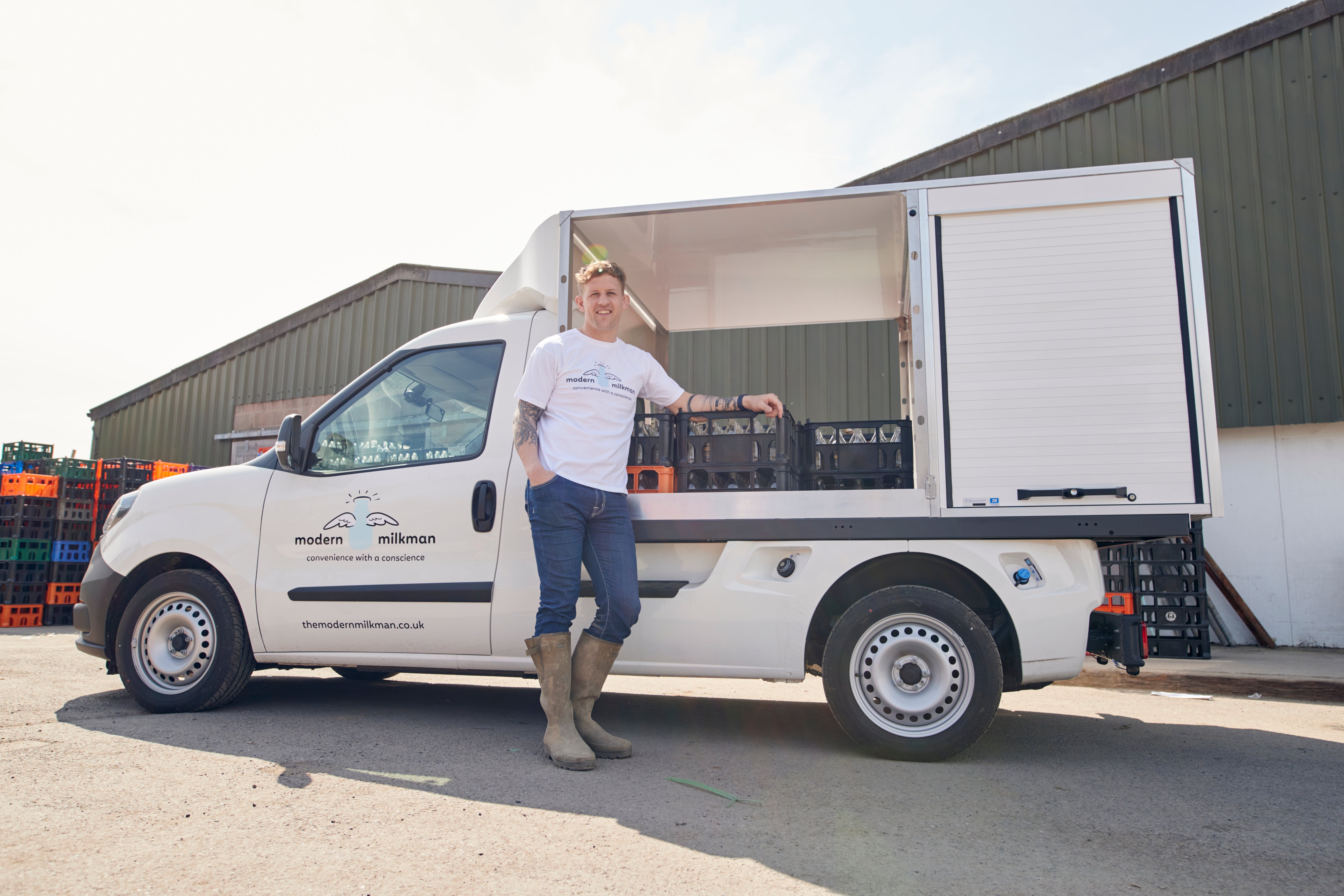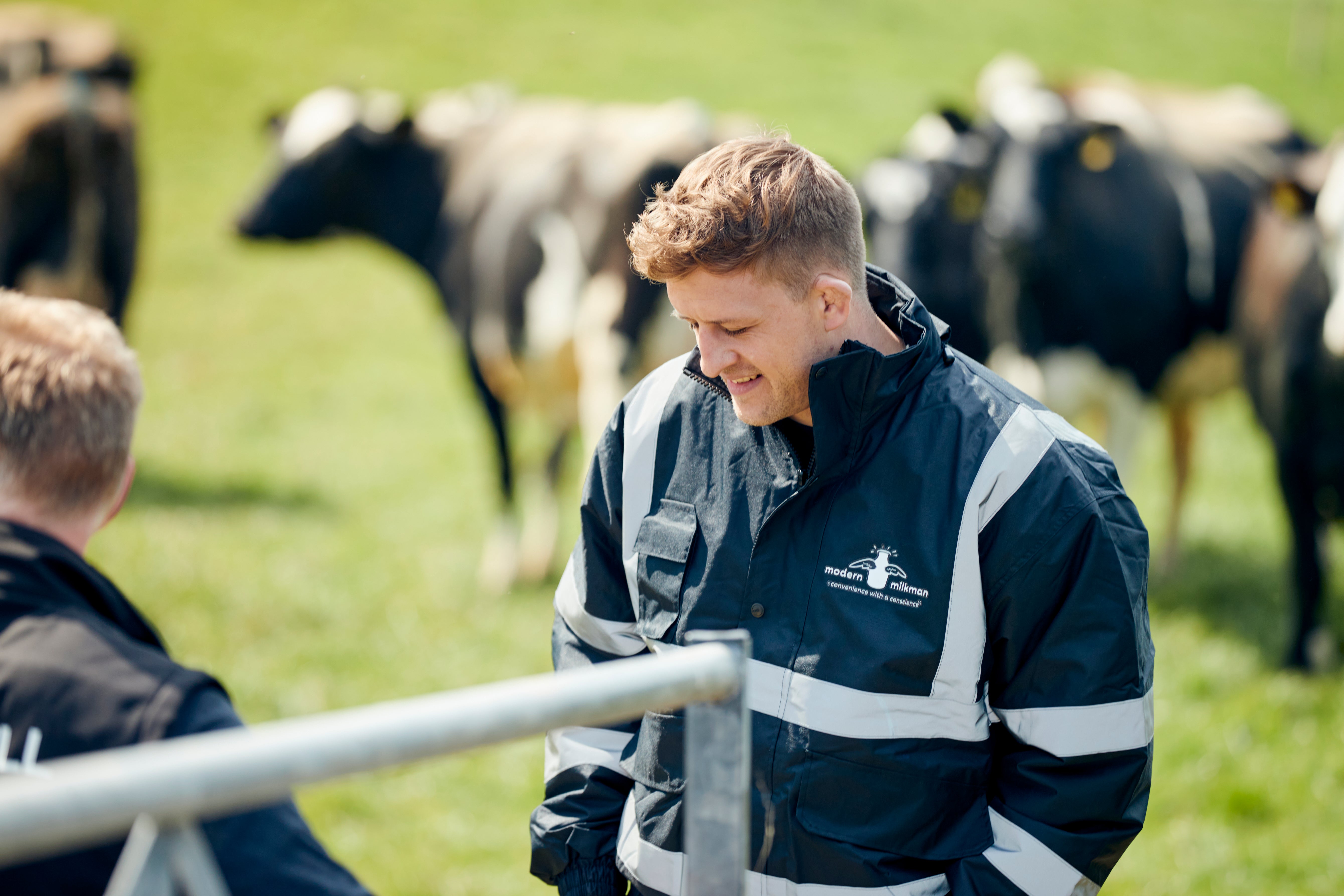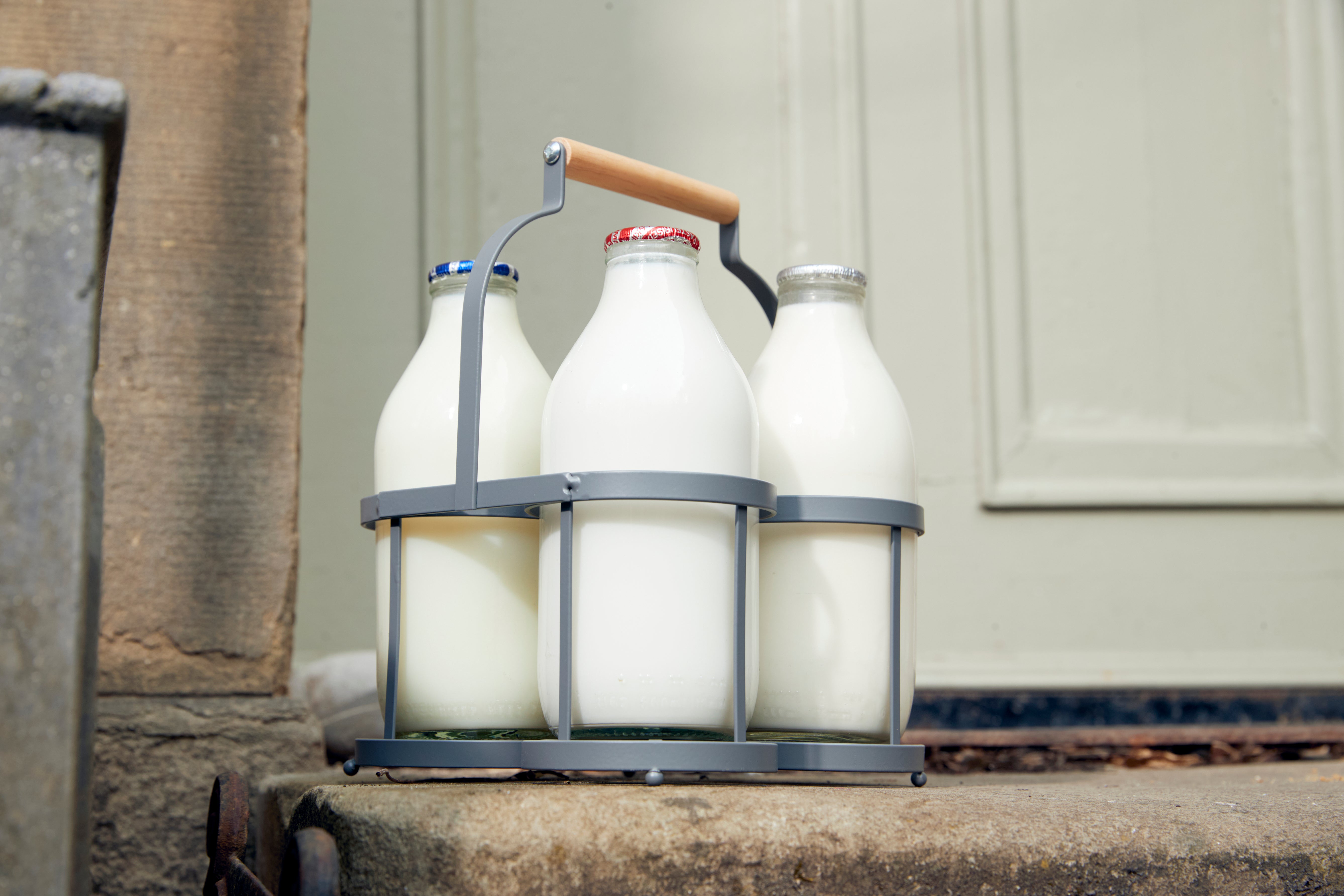Simon Mellin is trying to bring the milkman back
The Modern Milkman is both contemporary and nostalgic, combining the best of what we’ve lost with the best of what we’ve gained, writes Heather Martin


People my age don’t get food,” Simon Mellin says. “It’s fashionable, but they’ve lost touch with its origins. Not just where it comes from, but how you buy it, who you buy it from, the frequency of the purchase, the amount you waste, the respect you have for it, your understanding of it – everything around it, we’ve lost.”
Simon lost touch too for a while, when he ditched his job at Mellin’s Family Butchers in Nelson to chase a dream in the motor industry, building cars for Ferrari, Aston Martin and Porsche. Now Mellin has reinvented himself as the Modern Milkman, with a mission to reconnect people with food through the use of technology. He started the business in 2018 and, thanks not least to lockdown, now has over 200 employees and 100,000 customers and has saved upwards of 53,000 wheelie bins of plastic. He has offices in Leeds, Manchester, London and Lille, which is where he is when we hook up over Zoom.
Mellin “grew up around food”, just outside of Burnley. His dad became a butcher because he didn’t think there was a future in farming, but when Simon left school at 16 he didn’t think there was much future in being a butcher, which is why he became a mechanic instead. Each learned their trade through traditional apprenticeships. It took Simon three years, on a weekly wage of £80, with one day a week in college. Evenings and weekends he would hang out at local race meetings, handing out his CV and touting for work. Eventually he managed to get in with ABG Motor Sport in Runcorn, and into British GT, and “that was the start of my career”.
“I’m terrible at spelling,” he says, “but I’ve always been interested in things that move – tractors and motorbikes and stuff like that. My brain works well for mechanical things. When we started Modern Milkman I bought a milk round, because I needed to take it to bits to understand it.”
Mellin recalls how, when he worked for his dad as a boy in the early Nineties (“it’s not slave labour if you’re family”), people would shop two or three times a week. “They would understand the cuts and what needed to be eaten. And the butcher would manipulate the sale, because he’d have some stewing steak left over because everyone else had bought fillet steak, and he needed to turn it over so he got his full carcass balance, out of respect for the animal too. The customer was educated in how to cook that product, because the butcher helped them, and that relationship and that rapport was built, and all that was lost.”
Listening to Mellin speak is like hearing someone describe a collective fall from grace. But his regret is balanced by determination, his elegiac tone by optimism. “In the UK we all accepted the supermarket. It became an easier way of life, and your butchers, your greengrocers, your bakers, they all died, because they couldn’t compete on price. Now the consumer has come full circle, and it’s important to support local or buy things with impact in mind.”
It’s important that this service is accessible to the masses and not just the wealthy, because to fix a problem we have to make the solution available to 90 per cent of the community
He doesn’t exempt himself from guilt. “When I left school I didn’t respect what I’d learned. It’s not until you’ve come out of your sphere of influence that you realise what you once had. We’ve sat by and watched food be commoditised.”
When he started, his priority was to reduce packaging. He’d been watching The Blue Planet, and “the issues around single-use plastic really resonated with me”. Back in the day people didn’t have the means to store food for long enough to be able to shop in bulk. “Then we learnt how to package things, we learnt how to display things, we built big supermarkets, and we had to find ways for food to keep for ages, where the temperature control might not be that good, and we ended up where we are today. I’ve always thought what a waste of time packaging is, especially after watching David Attenborough – it’s this thing we have to have because we’ve extended supply chains.” But then he began to realise the even bigger problem was food waste. “The more we can educate the consumer to shop little and often the better.”
Around 2008 he had an epiphany, realising his skills were worth more in the food than the motor industry. Meanwhile, back at Mellin’s, his younger brother had taken note of the growing demand for free-range chicken, so they went into business together as Roaming Roosters, a company credited with the growth of HelloFresh. But Simon was restless. “I’d watched digitisation of grocery, I’d watched brands grow in different ways, by taking grocery to the consumer through technology. And I’d recognised that as we became more of a digital world, logistics became a bigger and bigger part of that. So I was looking for business propositions that sat across these big macro trends, and I came across the milk round.”
Eureka! It was food, combined with things that move: the two things Mellin knew most about.

Mellin’s business model is both contemporary and nostalgic, combining the best of what we’ve lost with the best of what we’ve gained. “The milk round blows my mind. A business from the 1960s, with subscription billing, returnable packaging, sourcing directly from the producer … Everything the milk round was, it’s so powerful as a proposition: it’s everything we should be.”
And that’s what Modern Milkman is. It offers up to three delivery days per week, but if you want just a single pint of milk on a Monday, or two pints and an orange and some eggs on a Friday, no problem. The only difference is that instead of leaving a note on the doorstep to change your order, you log on to the app or website.
It has a modest range of around 80 staple products, working directly with small-scale farmers and independent dairy processors for “a blend of size and scale of businesses that complement each other”. Everything is delivered in returnable packaging or home-compostable paper bags. Veg boxes were tried, but abandoned as wasteful. “People want what they want, and there’s always an item in the veg box that you don’t want.”
Above all, it’s done away with the bloated supply chain. “The supply chain is upside down in grocery. Retail is a push environment, stocking shelves in the hope that consumers turn up and buy products. But then the weather changes, or they go out for dinner, so you get the same waste as in the household, only multiplied. Ours is a pull environment: the customer subscribes to the product up front, so we know the demand in each area.”

Mellin is not an admirer of the rapid-delivery services that sprang up over lockdown, which “further commoditise laziness”. “We operate planned routes, so as to get more drops out of the vehicle and be more efficient, not just from an environmental perspective but also a cost perspective. It’s important that this service is accessible to the masses and not just the wealthy, because to fix a problem we have to make the solution available to 90 per cent of the community. We have a huge demographic spread in our customer base.” They purposefully launched in the northwest, in Burnley, which features high on the deprivation index, on the grounds that if they could make it work there they could make it work anywhere. The company now serves most of the north and the Midlands, and surrounding areas of London, and over the next 18 months aims to cover 70-80 per cent of the UK.
“Twenty-minute delivery is impossible to optimise, you’re giving the consumer too much control. It’s back to the point around braising steak vs fillet steak and the butcher helping the consumer make an informed decision. We’re just trying to help the consumer make sensible decisions about living in a more ethical way.”
Simon still lives in Lancashire. Business is big now, but he wouldn’t live anywhere else. He breeds native pigs and Aberdeen Angus cattle, but “it’s love, not a commercial proposition”. His mother Carol still works for him – “you know how at the beginning you just need help from someone you can trust; well, that’s generally your mum” – and his partner Becky runs customer experience. He’d love to buy a Mk 1 Escort when the kids are older: “That’s my absolute dream car, but my missus won’t let me have one.”
It was in fact Mellin’s depot in Leeds where Boris Johnson got locked in a fridge when he was ambushed by Good Morning Britain in 2019.“We were loading vans at 5am and next thing we know the PM’s there. It was just before election time and he was visiting the north – not sure why. It was one of the most random days of my life.”
The Modern Milkman’s logo is a milk bottle with wings. “It’s not that we think we’re angelic,” Simon says. “It’s just that it’s a brand with purpose. We’re trying to fix a few problems. Think about the milk bottle, and how iconic that is, and how forward-thinking it was for its time. We’ve built a platform that allows that traditional service to continue into the future.”




Join our commenting forum
Join thought-provoking conversations, follow other Independent readers and see their replies
Comments